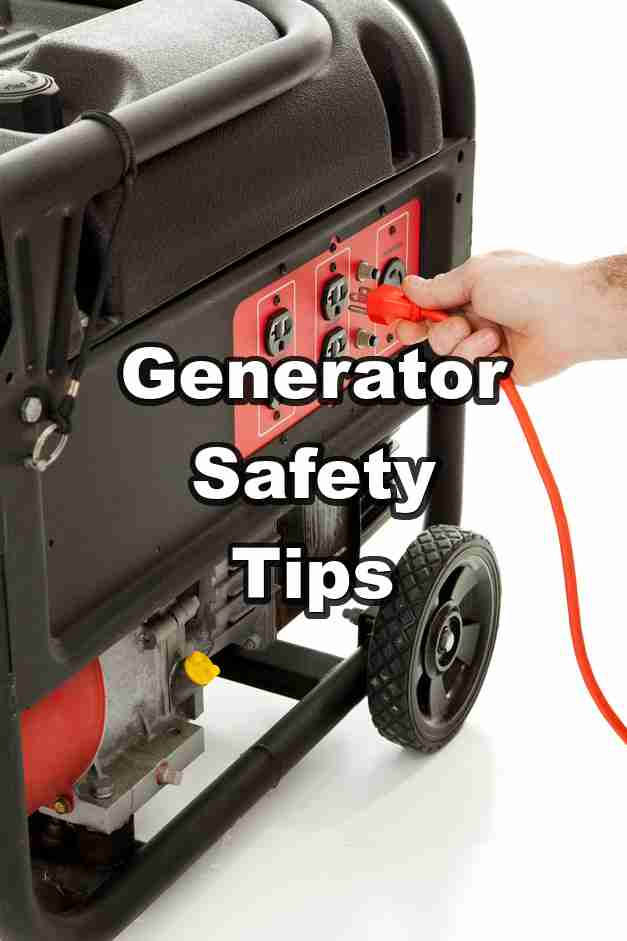Generators are indispensable during power outages, ensuring essential appliances and systems remain operational. However, using them improperly can lead to severe risks, including carbon monoxide poisoning, electrocution, and fire hazards.
This article is your comprehensive guide to generator safety, covering everything from proper placement and operation to electrical precautions and fuel handling. By following these expert tips, you can protect your family and property while maximizing the benefits of your generator.
Safety matters because generators produce invisible dangers like carbon monoxide and require careful handling to avoid accidents. Whether you’re preparing for emergencies or daily use, understanding these practices ensures peace of mind and reliable performance.
Read on to learn actionable steps for safe generator usage, including maintenance routines and best practices that every homeowner should know.
Key Takeaways
- Operate generators outdoors, 20 feet away from windows, to prevent carbon monoxide poisoning.
- Use grounded cords and avoid overloading to minimize electrocution risks.
- Store fuel safely in approved containers and refuel only when the generator is cool.
- Regular maintenance ensures efficient and hazard-free operation.
Proper Generator Placement and Operation
One of the most critical aspects of generator safety is proper placement. Always operate your generator outdoors, at least 20 feet away from windows, doors, and vents, to prevent carbon monoxide from entering your home. Carbon monoxide is a colorless, odorless gas that can be deadly if inhaled in large quantities. Ensure that your generator has adequate ventilation, and avoid running it in enclosed spaces such as garages or sheds.
When operating your generator, place it on a dry surface and protect it from rain and wet conditions. This will help prevent electric shock and keep your generator functioning properly. See our article “Can a Generator Get Wet?“
Electrical Safety and Preventing Electrocution
Proper grounding is essential to prevent electric shock when using a generator (see How to Ground a Generator). Follow the manufacturer’s instructions for grounding your generator, and use heavy-duty, outdoor-rated extension cords with the correct wattage rating. Avoid overloading the generator by plugging in too many appliances, and never try to power your home by plugging the generator into a wall outlet, a practice known as “back feeding.” This can put utility workers, your neighbors, and your household at risk of electrocution.
If you have a permanently installed generator, consider hiring a professional electrician to install a transfer switch. This will allow you to safely connect your generator to your home’s electrical system without the risk of backfeeding.
Fuel Safety and Fire Prevention
Generator fuel, such as gasoline, propane, or diesel, should be stored and handled properly to prevent fires. Store fuel in an approved safety can, away from living areas and fuel-burning appliances. Before refueling your generator, always turn it off and allow it to cool down completely. Gasoline spilled on hot engine parts can easily ignite.
Keep your generator away from flammable materials, and always have a fire extinguisher nearby in case of an emergency.
Maintenance and Testing for Safe Operation
Regular maintenance is key to ensuring your generator operates safely and efficiently. Follow the manufacturer’s recommendations for oil changes, air filter cleaning, and spark plug replacement. Before each use, inspect your generator, cords, and connections for any damage or wear.
Test your carbon monoxide detectors regularly to ensure they are working properly. These detectors can alert you to dangerous levels of carbon monoxide in your home, giving you time to evacuate and seek fresh air.
Generator Safety Best Practices and Tips
- Always read and follow the manufacturer’s instructions and guidelines for your specific generator model.
- Educate your family members about generator safety, including proper placement, cord usage, and refueling procedures.
- Develop a plan for generator use during emergencies, including designated outdoor locations and a list of essential appliances to power.
- Know when to seek professional help, such as hiring an electrician for installation or complex power needs.
By prioritizing safety and implementing these best practices, you can enjoy the benefits of your generator without putting yourself or your family at risk. Remember, taking the time to use your generator safely can save lives and protect your property.
Conclusion
Generators are essential tools for maintaining power during outages, but their safe operation is paramount. Proper placement—at least 20 feet from windows and doors—and the use of carbon monoxide detectors are critical steps to protect your household from invisible dangers. Ventilation and awareness of toxic gas risks ensure peace of mind while maximizing safety.
Electrical precautions are equally vital. Using grounded extension cords, avoiding overloading, and steering clear of wet conditions help prevent electrocution and fire hazards. Additionally, safe fuel handling practices, such as storing gasoline in approved containers and refueling only when the generator has cooled, minimize risks and ensure smooth operation.
Routine maintenance is the key to reliable performance. Regular oil changes, inspections for leaks, and adherence to manufacturer guidelines extend your generator’s lifespan while ensuring it’s ready for emergencies. These proactive measures transform potential hazards into dependable solutions.
By combining vigilance with these best practices, you can confidently harness the benefits of your generator while safeguarding your family and property. A well-maintained generator isn’t just a tool—it’s a cornerstone of emergency preparedness that provides security and reliability when you need it most.
And our last generator safety tip: don’t neglect generator maintenance.

Leave a Reply